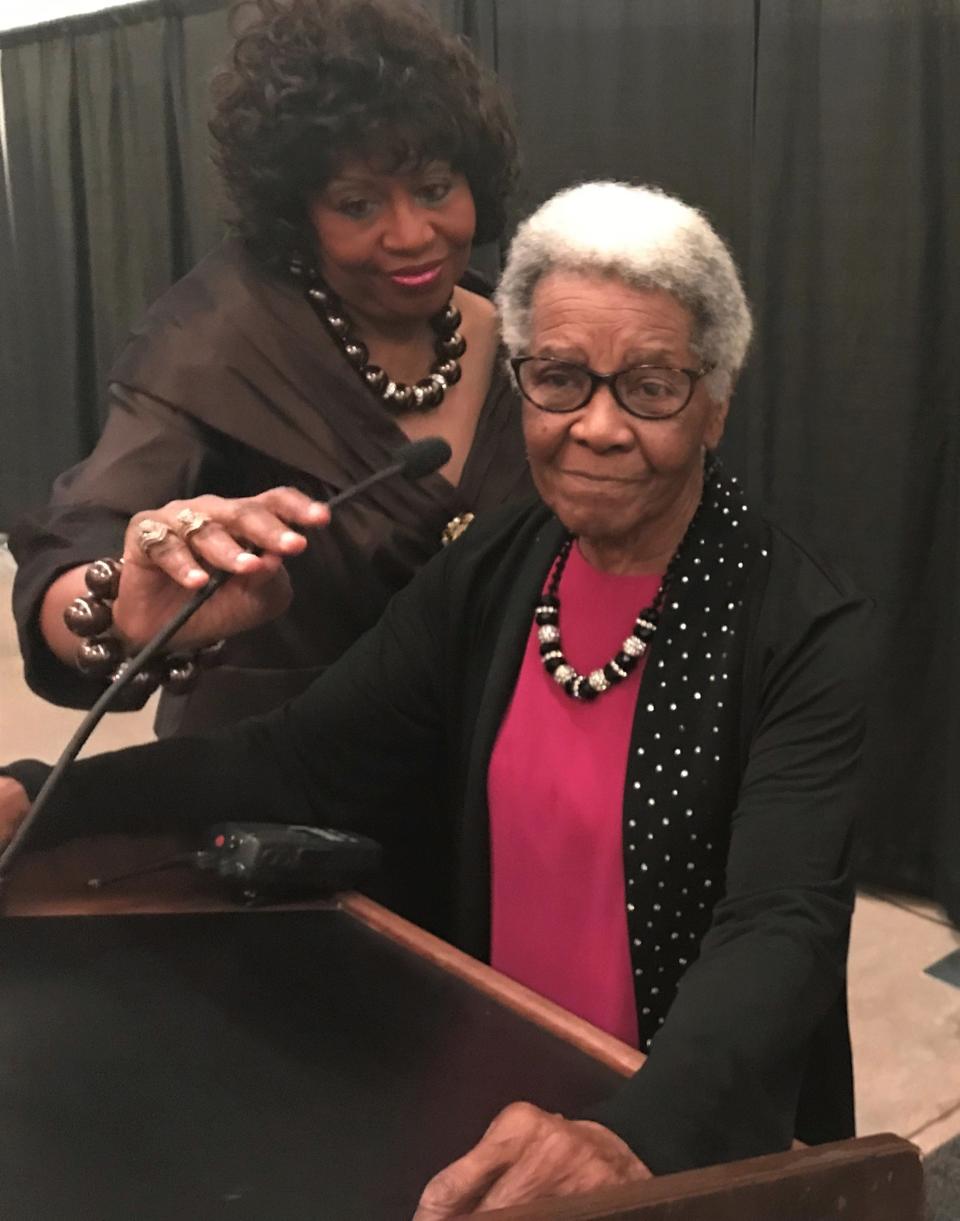Abilene Black community documentary effort truly is significant
There are moments of significance.
One of those came July 23.
At the Paramount Theatre, a crowd of 300 or so watched the premiere of "A Legacy Unearthed." Its focus was on the Black community history of Abilene, as collected over the years by Andrew Penns through the creation of Curtis House Cultural Center.
More:The making of 'A Legacy Unearthed'
More:Curtis House and its vital role in Abilene
As much as it was a history lesson for those unfamiliar with schools for Black students, the location of Black communities in flood-prone areas, the racially motivated killing of a Black man in 1922 and other details, it was a tribute to Penns. As well it should have been.
More:Black man shot to death in downtown hotel
Penns grew up in Abilene, attended Woodson Junior-Senior High School during its final years as the city's segregated school just east of downtown and then left to serve his country during the Vietnam War.
One of the more sobering realizations for the audience was how young Black men were sent to war, then returned home to the same lack of respect shown them before fighting for their country. The assassination of the Rev. Martin Luther King back "home" particularly affected Penns.
His experiences prompted him to vow not to return to Abilene, yet he did. His new pledge became to make a difference and initiate change here.
While Claudie C. Royals became a loud voice in the Black community, Penns took a softer approach. Both succeeded in their owns ways to raise issues and to become involved.
Penns was one of the founders of ICAN (Interested Citizens of Abilene North) and until recently led that group. He started a Black history museum in the former home of the Curtis family, which for years served the Black community with its funeral needs.
Penns also is a preacher, still serving Valley View Missionary Baptist Church in far north Abilene.
It took someone with deep roots in Abilene to launch the film project.
But central to the success was the project involving a younger generation and coming from within the Black community itself. Filmmaker Alisha Taylor, 27, admitted she grew up here without much knowledge of Abilene's Black history.
The story that blends Penns' effort and local history is nicely told by the Abilene Christian University grad, who is the daughter of Dr. Jerry Taylor, who heads the Carl Spain Center at ACU.
Her interest and compassion is evident in the film. At one point, while interviewing Effie Brewster, she leaves her camera and is seen leaning in to hug the woman who proudly took on the role of mother to the entire Black community. She is the widow of Robert Brewster, longtime educator and baseball coach.

Others involved with Curtis House, including Taylor's brother Jeremiah, are heard in the documentary, as well as ACU prof Doug Foster, who provides historical context. That includes how the opening of Dyess Air Force Base in 1956 led to the integration of Dyess Elementary School in the early 1960s, when the Abilene ISD was dragging its feet on change. Children of Black Dyess families had to travel eight miles across the city to Woodson schools.
At some point, the documentary will be available for wider viewing, Taylor said after the screening. She was beaming with pride at the reception.
Penns, who downplayed any need by others to honor him, was emotional.
He said Abilene's largely white history has been told by Jay Moore, and Mike Hernandez has promoted Hispanic history. It is time local Black history be recorded while those tied to it can tell it.
So imagine - a film about local Black history and one of its leaders on the stage of a theater that once relegated Black moviegoers to most distant seats.
It was a magic moment.
This article originally appeared on Abilene Reporter-News: Black community documentary effort truly is significant

